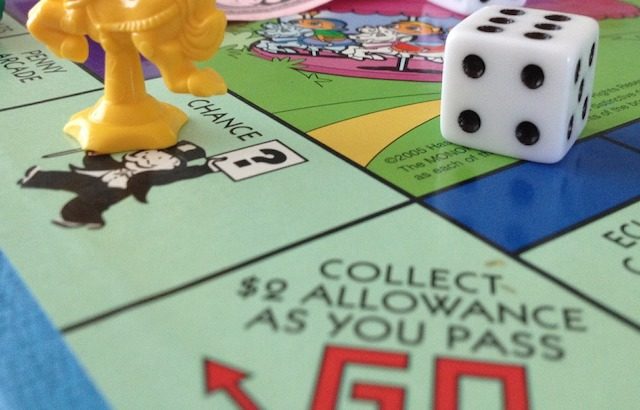The US self-help industry is worth over $10 billion a year. That’s a ton of money people are spending to get other people to tell them how to be better people in one way or another. You’d think, if it worked, it would decrease in value every year as people got better and better until it stopped being needed at all. But somehow that’s not the case.
On the upside, you can become a better person mentally and physically, and not just metaphorically, with some fairly simple steps that have been empirically proven and barely take up any money or time.
10. Listening to Music Can Improve Many Aspects Of Your Well-Being

There’s an actual neurological condition called musical anhedonia characterized by simply not liking music and it affects about 5% of people. But, beyond that, we can assume almost everyone likes music of some kind, and that’s a good thing. Your favorite music can actually lower levels of depression and stress. It can also do things like improve cognitive function and memory. There’s even evidence it can treat speech impediments.
If you’re looking to be healthier, listening to soft music can help you eat less. It can also improve the quality of your sleep. Basically, music can improve numerous aspects of your life. And most of the experiments only required people to listen to music for somewhere between 10 and 30 minutes while they performed other tasks, so it wasn’t a big commitment of time or effort.
9. 60 Minutes of Games Twice a Week Can Increase a Child’s IQ

In the age of video games and digital distractions you need to make time to turn devices off and just be in the real world sometimes. A great way to do that is with board games. They’ve been around forever and, if you have the right group of people, it’s hard to deny the fun you can have ripping into a round of Monopoly or Trivial Pursuit. And, as it happens, if you get your kids into board games you’re setting them up to be smarter than the average bear.
Children who were asked to play games for 60 minutes twice a week showed marked improvement in things like non-verbal intelligence and cognitive speed. And if you can’t get a kid to unplug there’s still hope as some of the games kids played to get these results were electronic games.
Additional testing has shown that kids who play games like Chutes and Ladders demonstrate improved math skills. Even brain games, those ones they claim will increase your intelligence, actually do improve your working memory (though claims of increased intelligence don’t really bear out).
8. Reading for 30 minutes Per Day Makes You Live Almost 2 Years Longer

Are you worried about your own mortality? If your plans to inhabit another planet or clone yourself don’t pan out, you may still improve your chances to live longer with a very simple solution. Read a book. Research suggests that reading for just 30 minutes a day can extend your life by about two years compared to those who don’t read. Of course, if you did this for 50 years you’d spend over a year reading and then you’d only gain one actual productive year, but you’re still ahead of the game, right?
One thing to keep in mind is that it’s not any reading, it’s specifically book reading. The research looked at over 3600 people who were 50 or older, and those that read books rather than magazines lived longer. If you read for more than 3.5 hours a week, you’re 23% less likely to die than those that don’t read. If it’s up to 3.5 hours, you’re 17% less likely.
Why would reading extend your life? It’s been guessed that it’s thanks to reading being able to engage your mind and improve cognitive function.
7. Writing About Past Trauma May Improve Wound Healing

Now some might argue that listening to music to ease stress and depression is a no brainer and not really that fascinating a fact. But the things you can do to improve your life can get a lot weirder. Like how research has shown that you can heal wounds faster if you write about past trauma.
We’ve likely all heard that talking about a traumatic situation can help us heal emotionally. And that’s true, and well documented. But less well known is that the same thing can help actual physical injury. In fact, if you write about your feelings related to a past trauma it can cut the healing time for physical injuries in wounds in half.
In a study that focused on a small group of otherwise healthy adults aged 64 to 97, participants were asked to write in a journal for 20 minutes a day. One group wrote about their mundane daily activities. The other wrote about some upsetting life events.
All members had a small punch biopsy wound made on their arms and the healing of the wound was monitored. Over 76% of those who did the expressive writing had healed wounds after 11 days compared to 42% of the other group.
6. 10 Minutes of Daily Exercise Could Prevent Over 100,000 Deaths

In this day and age you don’t need anyone online to tell you exercise can improve your health. That’s something we should all be well aware of. But do you know how exercise can improve your health specifically? Beyond something like helping you lose weight? To reduce it to a simple numbers game, 10 minutes of daily exercise could prevent 110,000 deaths every year.
A study in the Journal of the American Medical Association suggested that if people over 40 spent 10 minutes per day engaged in some kind of physical activity, then over 100,000 yearly deaths would be prevented.
The study covered 5,000 participants over the course of years and compared those over 40 to younger participants. Data was used from 2003 to 2006 and then death rates were tracked up to 2015. The results estimated even more lives could be saved if that 10 minutes was bumped to 20 or 30.
5. 10 Minutes of Meditation Can Improve Memory and Concentration

What’s your opinion on meditation? Helpful method of introspection and relaxation? Or just new-agey nonsense? Well, if it’s the latter, you may want to take a second look. Turns out that meditation has some real life benefits that extend beyond an overall sense of calm.
If you find yourself having issues concentrating and remembering things, maybe give meditation a try. As little as 10 minutes per day has shown an ability to improve concentration. If you practice even more often the results can be more impressive. In one case, brain scans of students who meditated 5 times per day for 8 weeks showed the ability to switch between states of consciousness. Other tests have shown that memory is improved as well.
4. Cutting 20 minutes of Facebook a Day Increases Your Mental Well-Being

Despite almost every story about Facebook in the media being negative for the past several years, the social media giant has not shown much sign that it’s dying off. They can still boast nearly 3 billion monthly active users on the platform. But if all the terrible things you’ve heard about Facebook and its policies haven’t forced you away yet, then consider how it can actually benefit you to do so.
Research suggests that if you avoid Facebook for even 20 minutes more per day than usual, you’ll be doing yourself a favor. Facebook addiction and social media addiction in general are real things. Many users feel a compulsion to constantly check for updates to see what everyone else is saying or if anyone has interacted with them. This leads to a marked decrease in psychological well-being overall. But cutting back by that 20 minutes can improve your situation.
Less Facebook time leads to less depression and can even see you exercising more. And that makes sense – take the 20 minutes you’d waste on social media and just go for a walk. In one study, nearly 200 Facebook users who were on the site for an hour per day were followed. Half stayed on for a full hour and half were cut back to 20 minutes. Those who cut back reported feeling less depressed and better overall at the end of three months.
If you find yourself feeling out of sorts and also on social media a lot, cut it back and see if there’s a difference.
3. 3D Gameplay for 30 Minutes a Day Can Reduce Dementia Risk

Alzheimer’s disease and other forms of dementia are devastating not just for the victims but their families. The effects can take years to play out and they are by no means pleasant. But as we wait for new treatments or a cure, there is some small glimmer of hope in ways we’ve discovered to reduce the risk. In particular, 30 minutes of video games a day may significantly reduce your risk.
Participants in a study, aged 60 to 80, had to play a game for 30 minutes a day for four weeks. One group played Angry Birds while another group played Super Mario World, which takes place in a 3D environment. While both groups showed improved cognition skills at the end, the Super Mario World group had greater improvements as well as improved memory.
More research obviously needs to be done, but the improvements do make a case for the idea that conditions like Alzheimer’s could be staved off with something as simple as regular gaming.
2. Meditation Can Increase Your Mood But Also Your Immune System

We covered meditation earlier in terms of how it can benefit your mind, but let’s dig a little bit deeper for some more tangible results.
Meditation has been shown to have a beneficial effect on the body’s immune system. Meaning, if you meditate you can literally make yourself healthier, at least to some degree. This can affect not just those who meditate in the more secular sense, but those who pray and have spiritual/religious experiences as well.
From a neuroscience point of view, brain scans of people deep in prayer or meditation show increased activity in areas related to concentration, which makes sense, but also decreased function in the parts that lend us our sense of self and our orientation in the world. This reflects a sense of oneness with the universe that people claim to feel and it exists in all people no matter their beliefs when they have these intensive prayer or meditative experiences.
From a body standpoint, blood samples taken from those who meditate frequently show increased expression of genes and telomeres related to fighting illness or maintaining health.
1. 30 Minutes a Day of Super Mario 64 Increased Gray Matter

People love a scapegoat when things go wrong. Back in the day rock n roll was the scourge that plagued young people. That evolved in heavy metal. And in more modern times it’s video games. People blame video games for violence, low grades, unemployment, sexual dysfunction and countless other things. Makes you wonder if there’s anything good about video games. Well, good news: there is.
Turns out gaming can actually make you smarter and improve brain function. Remember when we said gaming may reduce the risk of Alzheimer’s? Well, the way it does that can benefit everyone, not just the elderly or at risk. Memory, planning, spatial orientation and fine motor skills have all been shown to improve as a result of playing video games.
Adults in Germany were asked to play Super Mario 64 for 30 minutes a day for two months. After that time they were given MRIs. Compared to the non-gaming control group, there was a noticeable increase in gray matter in their brains. This was observable in the right hippocampus, right prefrontal cortex and in the cerebellum.
The experiment was repeated over a six month span with three groups some years later. The third group took computerized piano lessons. Once again, the Super Mario group showed increased gray matter.